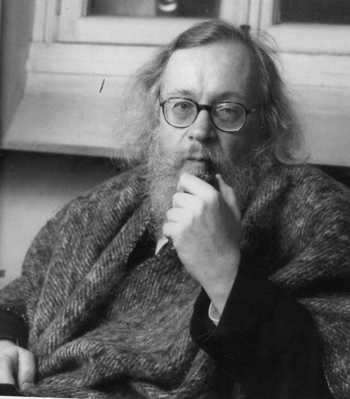Poem day! I am excited to hear a little performative poetry. Perhaps I shall be inspired to write my own. This week, I am thinking about pairs – Janus-like, I suppose, if you will: Pentheus and Dionysus, Frankenstein and the creation, Tamora and Titus as flip-sides of the same coin. Perhaps because I, myself, am feeling a little sub-divided these days. Also, the question becomes, if they are two sides of the same coin, where does one end and the other begin? Is there a border between, or are we always already everything – is the sum total of the whole world, of every experience, contained a priori in its totality inside of our bodies – can I be everything and anything at any given moment? What a terrifying and liberating thought – that at any moment I can be a creator or created, bacchanalian or austere, revenger or victim. What extraordinary possibilities are wasting away inside of this well of untapped energy I possess – and how do I free them? How do I feel them? Where are they located? And am I free to be free to explore them – or do I have to choose that freedom in every moment, at every juncture? It seems that possibility – that freedom, if I’m allowed to be unspecific – can come only from its omnipresent awareness – not omnipresent, but constantly present, perhaps? So, to really change me, I have to live in total and complete awareness of my body all of the time. Maybe? I guess that is the site of exploration for all of these artists – how can I be fully and totally me in this very moment?
Today I really want to keep us short to meet here because I see the rehearsals and see how much time you need to work. One new fable today from Anne and next time from Candace. Announcement about homework – I tried to explain why I wanted these poems. And some poems know it, know why I asked for them, and some poems don’t. Ultimately, it’s – I don’t care about poetry in this class. What I care about is something else. Why did I ask you to write poems? TO try and get a more creative and honest response. Yea…but not exactly. Something a little less inside of academia, more a response that would resonate with our artistic side. The raw emotion that comes with writing poetry – all you’re dealing with is the emotions, so you’re writing your feelings, allows other people to see what you are feeling. Poem is an avenue for feelings which are more complex than thoughts – something thoughts have on top of themselves. You want us to try to get away from a collective me and into a rehearsal I, so maybe to talk personally about ourselves and be open to the personal work. Images. Ultimately, nobody is wrong – ultimately, my goal is what? For us to get out of our heads to feel through our bodies. Looking for honesty. A way into work. Absolutely. This is the main reason – it’s your way into work. So…you see now the clarification. Many are really good – I see that work can be happening from the poem. You already have some performance possibility in the poem. Those of you who haven’t done as well can try again – does your poem give you room for work? If so, then it’s fine – if not, try to rewrite it and do it again. I will be responding throughout the week.
I posted an article on Blackboard by Grotowski. His testimony of a project that I feel is like your project, although he took more time and worked in a professional company and didn’t have to go to school. The project is very similar. He is trying to reply to a text and he ends up directing a different piece of devised theatre than he originally intended. A beautiful path going from one end, dropping the text, preparing a performance, and then asking for texts. The text disappeared, then improve situations, then theatrically devised piece, and when it was almost shaped, they brought in important texts that were crucial to individual actors and performers. That path is phenomenal to read about. Reading about one of the most important performances in the modern history of theatre. This is a formative performance piece that changed theatre as we know it. Apocalypsis cum figuris. You will hear about responses in which that work resonates/reverberates. Read that text and you will enjoy it, and then write me a very short response in which you only say one thing: what is, to you personally, the most important thing you remember from reading the text? Pick one thing that, if it’s all lukewarm, then say it. Be honest about it. We all respond to different things. Don’t perform anything – just tell me honestly what you found in the text. I want to see how you read this kind of testimony of devised work. We try to create something, we try to find ways in which this work can be done.
It’s all okay as long as you think it serves your work. Ultimately, I will judge – but if I don’t see it, we can have a conversation about it. You guys are not doing too much for this class, right? A situation in which we are together on a journey and we are trying to see what is the next step.
ANNE: love letters from Victor and Elizabeth. “While we are apart I am incomplete.” “I am incomplete – I dream of you and think only of you.” How interesting. I love it cause it never happens – all this emotion and build-up and it never happens and the creation kills her. Didn’t say who it was from – could have been from the monster. ‘Cause
Let’s work.

No comments:
Post a Comment